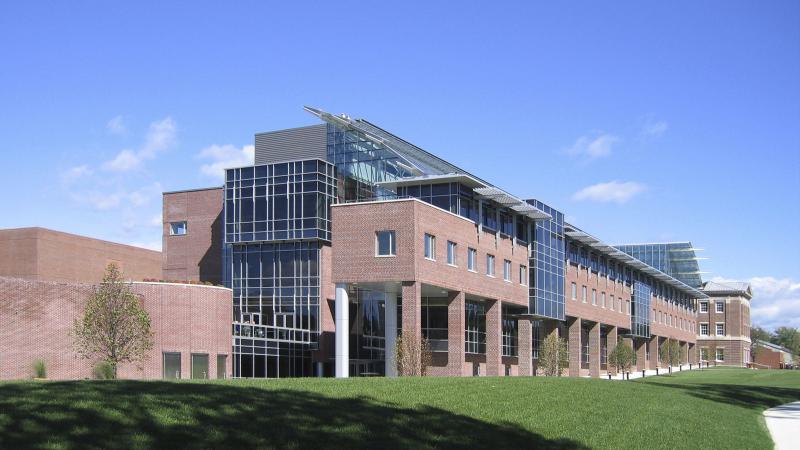New Cancer Research Group aims to accelerate development of new ways to detect and treat cancer
March 24, 2016

Through its new Cancer Research Group (CARGO), Rensselaer Polytechnic Institute (RPI) is drawing on its trademark interdisciplinary approach to help battle a disease that kills nearly 600,000 Americans per year and affects countless more.
CARGO includes 12 of the Institute’s leading researchers in disciplines as diverse as mechanical engineering, biology, biomedical engineering, and computer and cognitive science. The group was established last fall, just months before President Barack Obama announced the National Cancer Moonshot initiative to accelerate the development of new ways to detect and treat cancer.
Each Rensselaer researcher is tackling cancer from a different perspective. CARGO brings them together to learn about each other’s research, identify new possibilities for diagnosing and treating cancer, and collaborating to overcome potential obstacles. CARGO also provides opportunities for researchers to explore connections and develop proposals for funding under the National Cancer Moonshot and other initiatives.
CARGO exemplifies the concept and value of The New Polytechnic, which recognizes that today’s global challenges and opportunities cannot be addressed by even the most talented person working alone. The New Polytechnic enables collaboration using the latest, most advanced tools, technologies, and approaches to address the complex problems of the world.
“With CARGO, the emphasis is on accelerating the outcome, finding a cure faster,” said Deepak Vashishth, professor of biomedical engineering and director of the Center for Biotechnology and Interdisciplinary Studies (CBIS). “That’s why people are so excited about interdisciplinary research, especially in the context of a disease as vicious as cancer.”
Vashishth convened the group, which is co-chaired by Lee Ligon, associate professor of biology, and Kristen Mills, assistant professor of mechanical, aerospace, and nuclear engineering (MANE).
Other group members include: Juergen Hahn, professor and head of the Department of Biomedical Engineering; Xavier Intes, associate professor of biomedical engineering; Patrick Maxwell, assistant professor of biological sciences; Deborah McGuinness, professor of cognitive and computer science, Tetherless World Research Constellation senior chair, and founding director of the Web Science Research Center; Joyce McLaughlin, Ford Foundation Professor of Mathematical Sciences and director of the Inverse Problems Center; Assad Oberai, professor, MANE, and associate dean for research and graduate programs in the School of Engineering; Catherine Royer, professor of biological sciences and chaired Constellation Professor in Bioinformatics and Biocomputation; and Bulent Yener, professor of computer science and founding director, Data Science Research Center.
“Rensselaer is not a medical school or the type of organization one would traditionally associate with cancer research. But we have a lot of researchers engaged in interdisciplinary work that could contribute to the understanding of cancer biology,” Ligon said. “A major goal of this group is to identify our unique expertise, explore the synergies in our work, and find ways to strategically deploy our expertise to advance the broader cancer research agenda.”
Ligon has been investigating how the shape and structure of cells affect their function, and why cancer cells separate from tumors and interact with nearby healthy cells.
Mills points to the enormous potential of tapping Rensselaer strengths—in engineering, computational science, biotechnology, and data exploration and applications—to better understand and battle cancer.
“Engineers are ready to have an enormous impact in this field,” she said, “not by taking the place of cancer biologists but by providing the tools that can aid in the understanding of the challenges and underlying phenomenon of the disease.”
Through her research, Mills seeks to isolate and understand what happens during tumor growth. She builds in-vitro models of cancerous tissue to investigate the biomechanical function of tumor cells—how they interact with and change the body’s mechanical environment, and how that interaction affects cancer’s progression.
Intes is developing optical molecular imaging techniques that have broad applications in cancer research. These include image-guided surgery and monitoring cell response to targeted drugs either in bioprinted tumor models or preclinical models. The long-term goal is to improve precision medicine from the bench to the bedside.
Oberai is developing a computational technique called biomechanical imaging (BMI), which maps the mechanical properties of tissue. BMI is being used in conjunction with ultrasound to improve breast cancer diagnosis. Specifically, researchers are using BMI to infer the shape and stiffness of individual collagen fibers to determine the outlook of a tumor. The fibers tend to be wavy in benign tumors and straighter, and thus stiffer, in cancerous tumors.
When Oberai presented his research during a recent CARGO meeting, the reaction underscored the advantages of interdisciplinary collaboration. Oberai showed the image-based modeling at the tumor level and, immediately, the questions came from the biology researchers: Can that be done at the cellular and molecular levels? When the answer was “yes,” the excitement was palpable.
“For these researchers, all the clues are biological,” Vashishth said. “If they could get additional clues and new hypotheses from image-based models, new advances in cancer research can be made.”
At least one CARGO member is motivated by both personal and professional reasons. A cancer survivor, McGuinness is determined to use her expertise in semantics and data integration to make a difference in cancer research. Her role, in part, is to “provide the glue” that can connect and integrate her colleagues’ data. She also will help fellow CARGO members mine and manipulate the wealth of existing open-access data.
Because her work is inherently interdisciplinary, McGuinness is keenly aware of the “different kind of progress that can be achieved when you look at something from many perspectives. That’s what the CARGO team is doing,” she said, “taking the time to be educated in each other’s research to see how, together, we can be much more than the sum of our parts.”